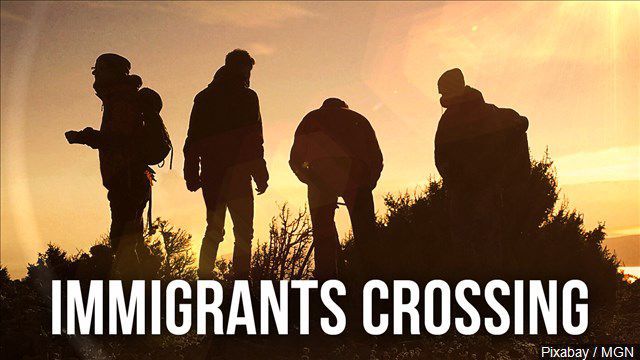Recent swarms of Central American migrants seeking asylum arguably have affected no place more than the Rio Grande Valley. More of them have arrived at South Texas ports of entry than at any other place along our border.
Their presence has strained local resources, both public and private, to help provide them food, shelter, travel assistance and other basic needs.
Texas Gov. Greg Abbott announced last week that this state no longer would allow refugees to settle here, after President Donald Trump in September issued an executive order giving states permission to do so. Abbott was the only governor to accept the inhumane offer.
Cities, counties and organizations that have provided services to refugees — who have largely borne the brunt of expenses and troubles related to helping the recent flow of migrants — have been among the first to criticize both Abbott’s announcement and Trump’s order.
Helping refugees is no small task. But legions of people, from those serving religious vocations to residents responding to their own consciences, have come forward to do what they can. They find no relief in shutting the door, only an indefensible decision.
Despite the inconveniences, it is wrong to turn our backs on people who feel forced to leave their homelands and look for a new home.
The troubles these people leave behind are very real and well documented. Economic collapse and high crime caused by drug gangs in Guatemala, Honduras and El Salvador have left thousands of people dead. The threat of crime and lack of legal work has fomented frustrations that have led to a rise in domestic violence. Waves of people, fearing for their lives, have trekked thousands of treacherous miles hoping to find a chance — just
a chance — at a better life. Some are mothers with small children; some are teens and pre-teens making the trip alone.
Because so many people cross here, Texas historically has become a popular place of resettlement; a quick look at a map shows the influence of large settlements of German, Polish and Czech nationals in central and north Texas. Refugees from Cuba and Vietnam have built a strong presence in Houston and other areas.
It remains to be seen if the decision will stand. A federal judge on Wednesday blocked Trump’s order that allows the refugee rejection; 42 states declared outright that they will continue to accept refugees, and the others haven’t declared their intentions despite a Jan. 21 deadline Trump imposed in his order.
U.S. District Judge Peter J. Messitte ruled that the order “does not appear to serve the overall public interest,” and goes against “clear statutory text and structure, purpose, Congressional intent, executive practice, judicial holdings, and Constitutional doctrine to the contrary.”
Moreover, many refugees have relatives in the United States and are looking to unite with them. Blocking their entry will forcibly keep families apart.
We trust the judge’s order will be permanent. We would prefer, however, that our governor — the only one willing to slam the door — will rethink his decision, and render the president’s order moot.




